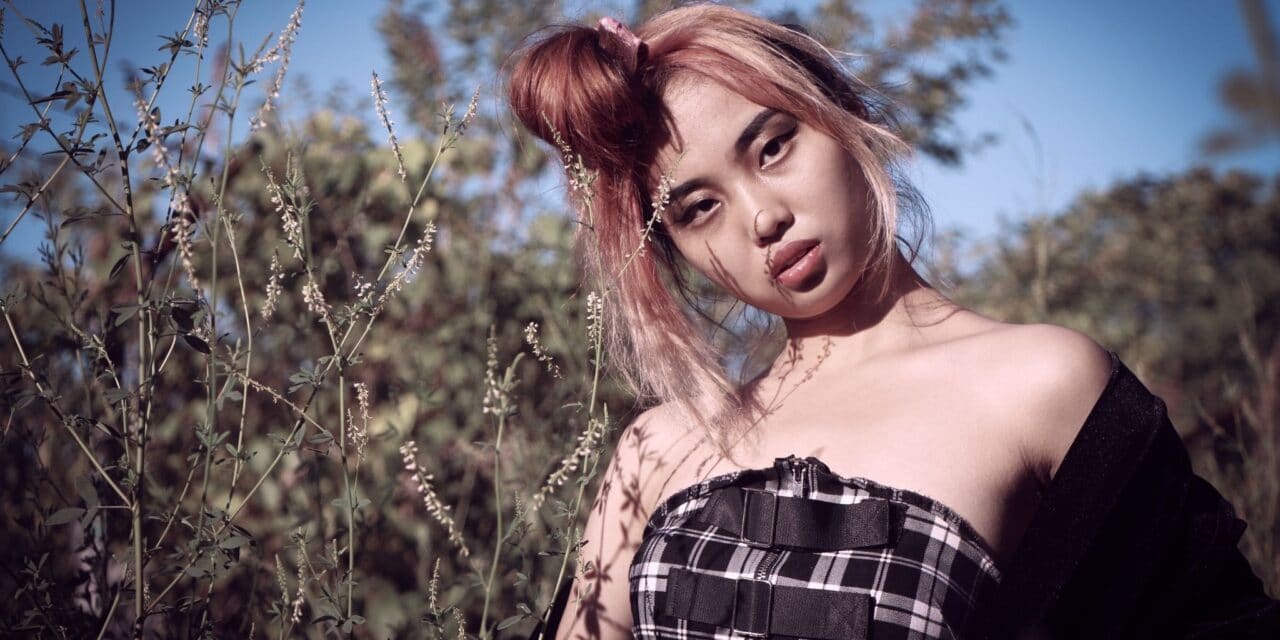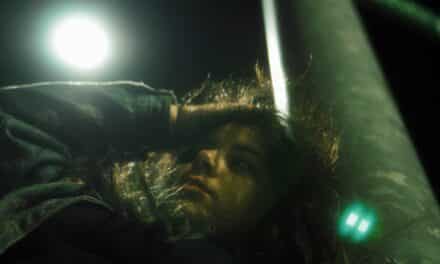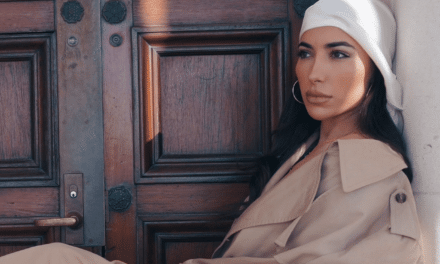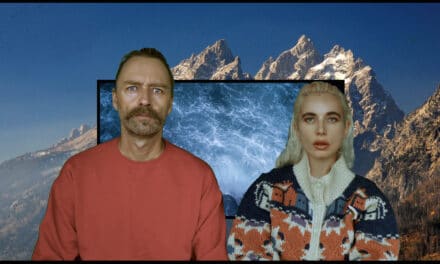Singer/songwriter Soule is emerging from isolation with her latest single, “Quarantine Scripts”. After experiencing the stress and uncertainty of a global pandemic, coupled with the injustices plaguing our society, “Quarantine Scripts” is an account of the destruction Soule witnessed from isolation.
A singer-songwriter, self-taught guitarist and visual artist, Soule refuses to be pigeonholed. Her sound fuses the realms of modern indie, shoegaze and slowcore with angst-fueled vocal deliveries inspired by ‘90s alternative rock and feminist punk. Exuding a fiery aura through her distinctive raspberry-red top-bun hairstyle, Soule’s visual aesthetic juxtaposes with the inner world of raw poetic metaphors in her lyrical writing. Whether it be an unspoken letter or bursting through a fence or cage, Soule intends to break boundaries, in the world of both music and social justice. Her upcoming debut EP “wall splattered with ink” embodies current social themes pertaining to systems of oppression.
Soule, known personally as Jennie, grew up in Brooklyn, New York City before relocating to Chicago in late 2019. She identifies as a queer Asian-American artist with an invisibile disability. At age 15, she discovered her passion for music as a channel of self-expression and inspiring change, and began writing lyrics in her bedroom and on subway trains. Soule dabbled in various forms of art — from poetry to dance to videography — but ultimately had a vision and ambition as a musical artist.
Tell us about the story of your art.
I’ve been into songwriting for a couple of years, though “quarantine scripts” and my upcoming debut EP emerged entirely over the course of the pandemic. I always had this internal desire not only to express myself but also to channel my creative energies into something impactful towards people and communities. Quarantine offered the time and space away from daily hustle-bustles to self-reflect; and the surge of political anti-racism protests inspired me to explore the systemic nature of privilege and oppression – and my position within it – through art. My music tells a message of activism, but it’s also a personal story about breaking out of systems and fight to access my energy and identity.
What is the message behind your art?
I hope my project reminds us of how these social issues still affect us on an individual level, although the Black Lives Matter and AAPI movements gradually faded from mainstream media attention. I also want my music to be personally relatable. “Quarantine scripts” is essentially about having these thoughts and reflections bursting through your head amid the world’s chaos, while being cut off in isolation from it. Feel free to listen to the song and imagine the subject as any person, place, or thing that you associate feelings of disconnect and isolation with.
What are some sources of inspiration for your lyrics and storytelling?
I am compelled by current events (e.g. political protests, the pandemic) as well as personal experiences, either witnessing or experiencing oppression – and most importantly, the emotions behind it all. There’s one song on my upcoming EP with a verse inspired by an experience at Six Flags where I witnessed a heated, racism-fueled conflict. It ultimately resulted in a group of friends hopping over a fence to get inside, and it felt like a momentary symbol of protest. The angst in my songs also takes root from my experiences in marginalized groups and the obstacles I’ve faced as a result of that. I write poetry too; perhaps I’ll turn one of my poems into a song one day.
Who is an artist that you look up to more than others today?
I’ll go with beabadoobee because of parallels in our upbringings. We both come from an Asian background and an immigrant family, and have thus dealt with this pressure towards success – through a traditional path – and the struggle of breaking out of the norms we were taught to pursue our musical endeavors. Her having picked up the guitar and taught herself at 17 inspires me because I have a similar history: I started at 18 after having played the piano for a few years, taught myself a lot of the instrument over the course of quarantine, and wrote all of my songs on my upcoming debut EP with it. That there’s a successful figure in the music industry with a similar upbringing is a reminder that I’m not alone, and I’d love to use my music platform to do the same – empower other creative marginalized voices.
All time favorite record?
I would say Siamese Dream by The Smashing Pumpkins. While my music taste has evolved drastically over the years along with my sense of identity, making it hard to pinpoint an ultimate favorite, Siamese Dream was one of the first records that ultimately got me into the 90s alternative, grunge, and shoegaze that I avidly listen to nowadays.
Tell us about your latest release and how it came about.
The first line of “quarantine scripts” I thought of was: “invisible letter to you, I’ve written in my head.” I coined the phrase “quarantine scripts” and built the concept around that. I did a little word play with an allusion to the manifest destiny between the first hook and second verse. It’s a reference to the cold-blooded trajectory of our history that’s often disguised as a progression towards liberty.
I had a voice memo of bridge ideas for the song – I guess I was messing around one day and then completely forgot about the ideas the next day, until I stumbled upon this old recording on my phone a couple of months later and decided it was material worth refining and incorporating.
I ended up having to rerecord the song – it was quite frustrating, but I wanted to maintain the creative control over my projects that I didn’t have the first time. I ended up working with a different producer and we layered the vocals with harmonies and ad libs, added subtle synth waves and more reverb, and ultimately brought the song to life.
You seem to be fusing several musical genres. What inspires your sound?
I’ve always been drawn to this trippy, misty atmosphere from shoegaze-like, ambient effects. It creates this immersive world through the headphones. I’m also influenced by alternative and grunge rock from the 90s, as well as feminist or queercore punk sounds. They express the other, more assertive and angsty, side of my art. You’ll hear more of them on my upcoming EP, though they’ve influenced my vocal direction a bit on “quarantine scripts.” I aimed to build this very subtle juxtaposition between some lighter soprano vocals and crispy tone.
What excites you the most about what you do?
How I’m able to fuse various aspects of my multidimensionality – whether it be merging my creative interests with my passion for social activism, or concocting my sound and visual aesthetic into a personal brand – and create something nuanced and potentially impactful to the masses. I love networking with fellow creatives and being able to bounce off of each other’s energies – that’s the type of stimuli that helps keep me afloat.
Where do you see yourself in 5 years?
I’d definitely love to see my music reach a particular audience pool, for my story to be heard along with it – and inspire people along the way. I consider myself a self-starter and am keen on manifesting a life that is fulfilling and purposeful – in which whatever you do, you’re willingly putting energy into it and it’s reciprocated. I’m still young and figuring out what exactly that would look like for me.
Your style is very original and elaborate. How do you take care of your aesthetics?
I love changing things up but in the simplest way possible. My hair routine isn’t hard at all. It’s pretty much just styling it into a bun at the top of my head but letting the length separate and dangle naturally on the sides. I think the way I style my hair might give off the impression that it’s all red, if you only see the front. That’s because my roots are covered; I’ve kept the roots at its original dark color to keep it healthy and avoid the need of a more complicated routine. And I use vegan, sulfate-free, color-protecting shampoo and conditioner to maintain the color.
What was the most daunting moment in your career so far?
I’m just getting started, so I’m sure I have a lot to experience yet down the line. I’d say the release in itself, and I have a couple of open mic events lined up. Entering the spotlight with art that is very personal and has been sitting beside you for so long is quite a transition to adapt to.
What is the best advice you’ve ever gotten?
Every artist moves at their own pace; you can’t rush the creative process. Crafting a narrative of any sort takes time to unfold, and it’s okay to wait.
This was something I had to realize myself over time. Otherwise, I put a lot of pressure on myself to get things done to streamline with this fast-paced society. I wrote “quarantine scripts” and the other songs on my upcoming EP last year, and wanted to get my project out as soon as possible, but it took some time to develop my aesthetic, refine my sound, and come to terms with my sense of identity. I actually felt somewhat defeated by time until I realized that you can’t force a timeline on quality authentic art.
Where do you think the next game changer will be in the music industry and entertainment scene?
I’m not too certain if I were to be frank. I could see us gravitating further towards electric production, with perhaps more complex synthesizers and drum machines. Artificial intelligence is on the rise, and I could see it being a revolutionary game changer to the world of music – not in a way that I necessarily like though. I love music that is raw and expressive; with technological advancement, we could lose some of that rawness, and I’m afraid we’ve already been losing it in mainstream music today.





